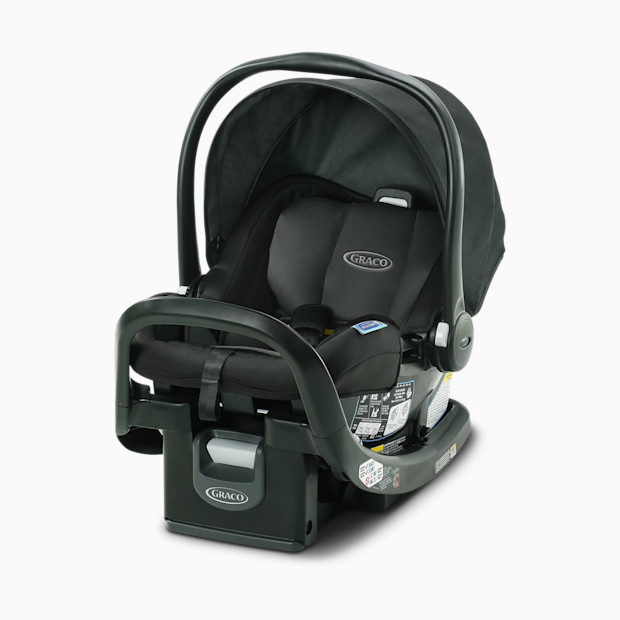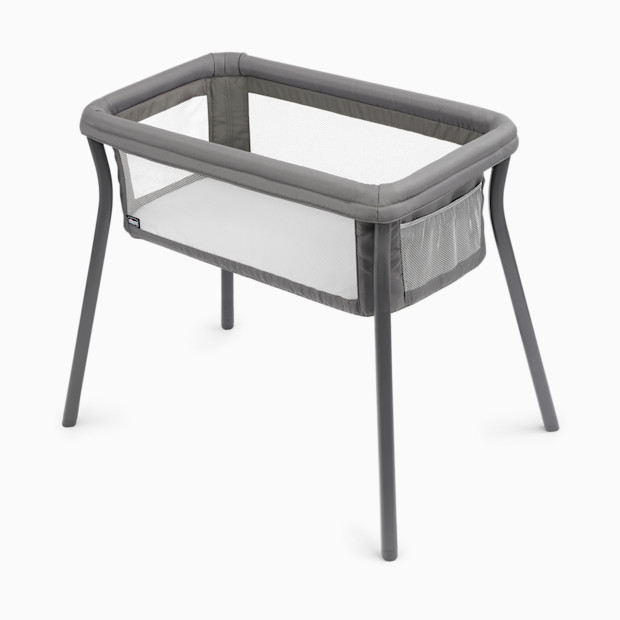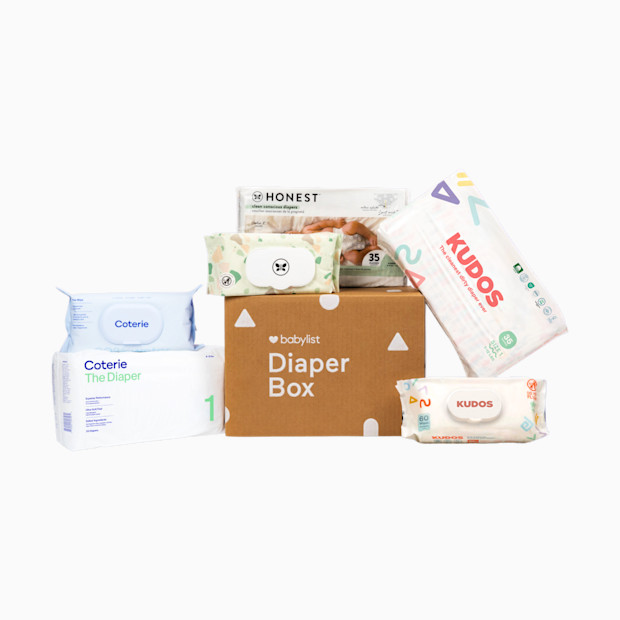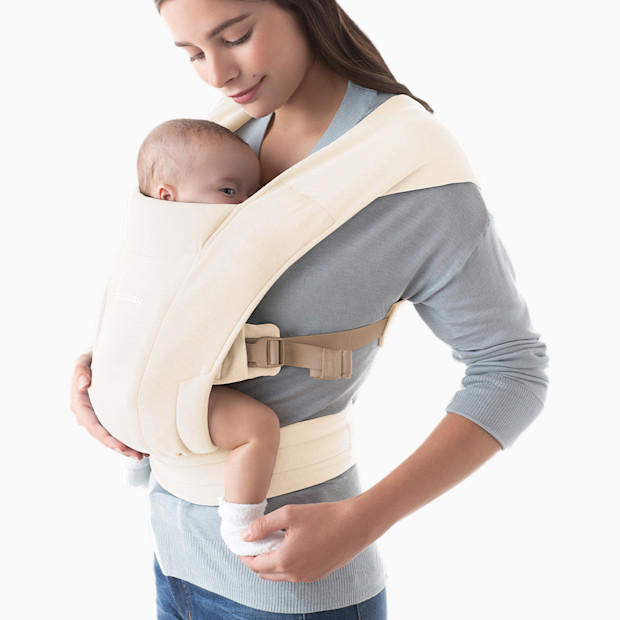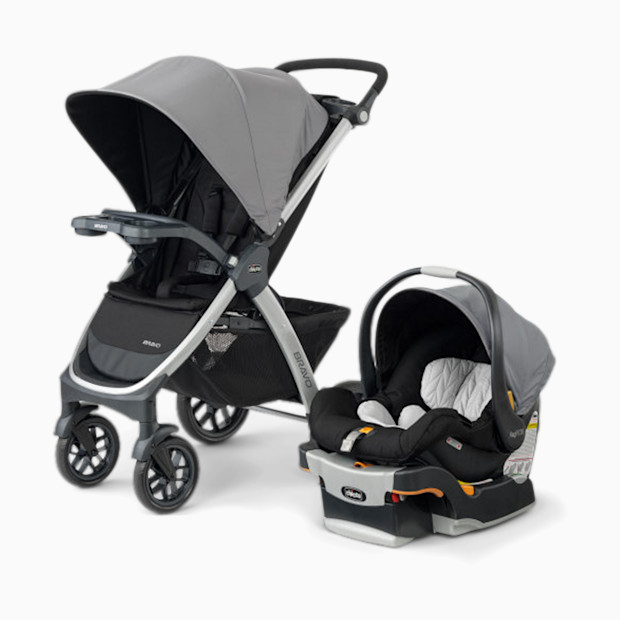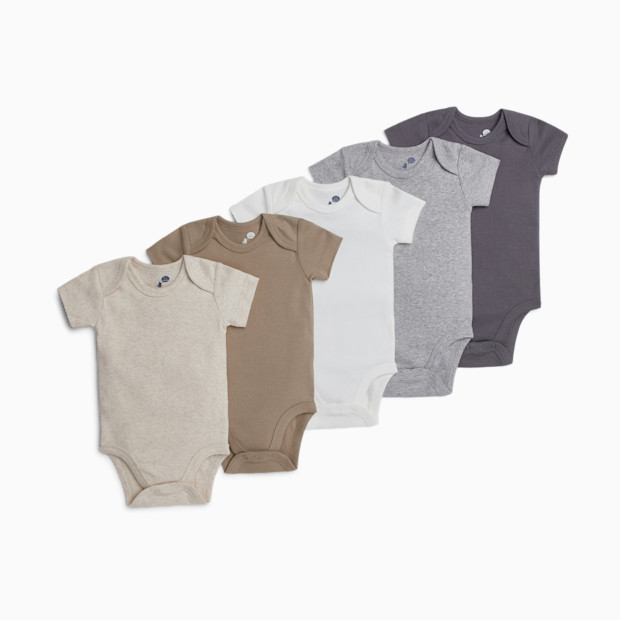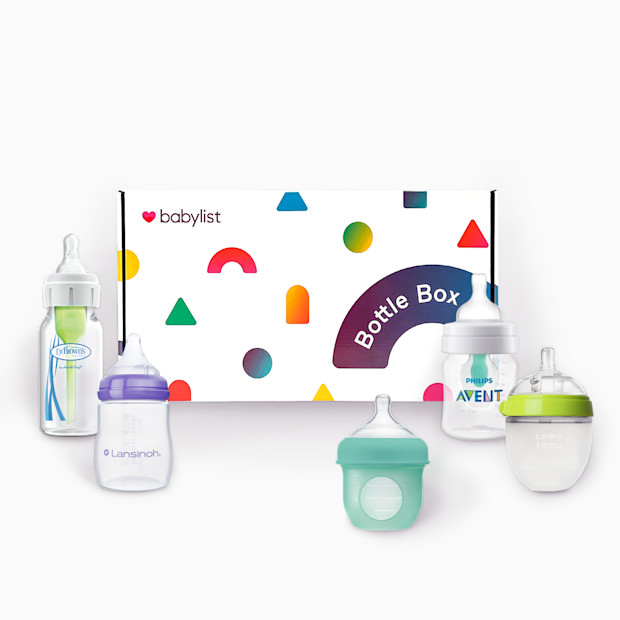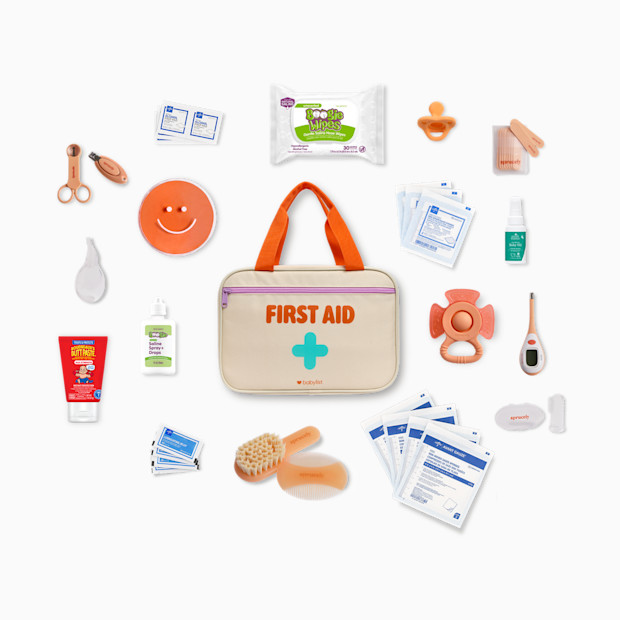9 Essential Things You Need to Bring Home a Newborn
The must-haves to get you through the first few weeks and beyond.
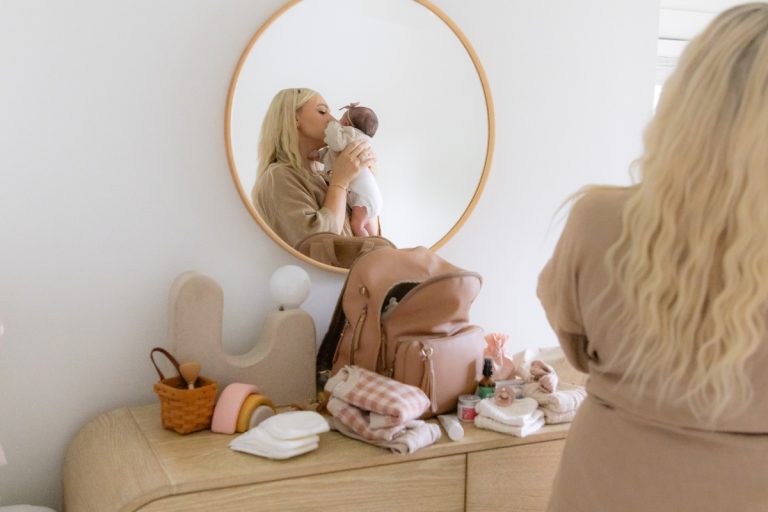
There are a lot of things we buy for our babies before they arrive. Some, like diapers, are super important. Others, maybe not.
If you’re hoping to take a minimalist approach or simply want to start with the basics and see what baby likes—and you too!—before you buy more, this list will help take you from the hospital to home and get you through the early weeks.
A Car Seat
An infant car seat is specifically designed for younger babies. It can be used from birth until your baby reaches the seat’s height or weight maximum, whichever they hit first. (This seat works from four to 30 pounds and up to 32 inches.) Infant seats always face the rear of a vehicle and click in and out of a base that stays in your car so it’s easy to transport your little one when you’re on the go.
If you’re driving home from the hospital or birthing center, most won’t let you leave without a car seat, so this is an essential item. You can choose to skip the infant car seat and go right to a convertible car seat—a larger, heavier seat that can be used with children of different sizes and can change from rear- to forward-facing—but you’ll lose the ability to transfer your baby in and out of your car or stroller while still in their car seat.
Check out our Ultimate Car Seat Guide for our roundup of the overall best car seats for all ages and stages.
A Safe Sleeping Spot
Nothing will guarantee you a full night’s sleep with a new baby, but a safe place to put your little one down for some (even if it’s just for 45-minute spurts) is key. Many parents love using a bassinet in their bedroom with a newborn. (You can also choose to use a full-size crib right from the start.) This option is affordable and portable, two features we value.
Tip: Purchase a crib mattress that fits your specific crib (many crib mattresses are double-sided, with a firmer side for baby’s year). And keep the crib or bassinet free of loose blankets, pillows and stuffed animals.
Diapers
Whether you decide to use cloth diapers or disposable diapers, diapers are a must (babies go through eight to 10 day). Most hospitals will send you home with a stack of newborn disposable diapers, but make sure to have some extra newborn and size ones waiting for you. This bundle lets you try three different eco-friendly brands to see what works best for you.
Tip: Stash multiple packs of wipes around the house, in your bag and in the car in case of diaper-change or other cleaning emergencies. Also have some diaper cream on hand to help soothe diaper rash.
A Baby Carrier
In the first few weeks (and beyond), nothing is sweeter than keeping your baby snuggled up against your chest. It can help your baby feel calm and secure, like they’re still in the womb, and free up your hands so you can get other things done.
There are tons of baby-wearing options on the market, and you should try on some to find what feels most comfortable for you (though baby may have other opinions once they arrive). The Embrace is our go-to pick for the first few months. It’s easy to get on, soft and comfortable and hip-healthy for your developing baby.
Slings and wraps are also great for keeping newborns close. Structured carrier styles tend to last longer, as you can usually use them until your baby is in the toddler years, but are a bit bulkier and sometimes require a newborn insert.
Check out our full guide to the best baby carriers for more options and to help you choose the right one for you (and baby).
A Stroller
While you’re car seat shopping, you may want to think about strollers too. Many popular car seat brands also make travel systems, in which your infant car seat connects with the stroller, so you can get moving right away. Once baby is able to sit upright, you can use the full-size stroller on its own.
You can check our best strollers guide for more expert-tested and parent-loved options.
Baby Clothes
You probably already have your eye on some tiny, adorable clothes—but wait until your baby is bigger for those Instagram-ready outfits. Newborns go through lots of outfits in a day, so sticking to the basics is a great place to start: think wrap-front tops for quick changes, multi-pack cotton bodysuits and swaddles for sleeping. A few hats and socks or can also help keep them cozy.
Feeding
Bottles make it possible to share feeding time with other caregivers, whether baby is eating formula or breastmilk. Choose a slow-flow nipple for the early months—and know that some babies prefer certain bottles over others, so you might want to try a few before you commit to one brand. This starter pack includes five popular bottle brands so you can see which kind baby (and your whole family) prefers.
If you breastfeed, a breast pump can be useful to help get and keep that milk flowing and to keep you comfortable when you’re away from baby for longer stretches. (You can also get a free breast pump through insurance with Babylist Health.)
Tip: Manual breast pumps are good in a pinch or if you’re not planning to pump often, while electric pumps are faster and more efficient, whether you’ll be pumping occasionally or all the time.
Formula
“I intended to breastfeed but found out I was unable to produce milk AFTER having my baby—would have liked to have some formula on hand but didn’t,” one Babylist parent told us in our Best Baby Products survey, a poll of over 6,000 new parents.
We’ve heard the same sentiment from countless others—which is why we recommend having a little baby formula on hand regardless if you think you’ll use it or not. (You can ask for some free formula samples to take home from the hospital, too.) It never hurts to be prepared and can be a lifesaver if you’re having latching or supply issues or if your baby is struggling to gain weight.
Tip: If you do plan on formula feeding regularly, a baby formula maker can be a huge time saver.
First Aid and Grooming
You may not need all of the items in this first aid and grooming kit right away (or even ever), but having them on hand just in case can give you peace of mind. Nail clippers help tame those tiny-but-sharp newborn nails, a rectal thermometer can help you determine if it really is a fever and a nasal bulb and saline spray will help relieve stuffy noses. Developed with ER doctors, the Babylist First Aid & Grooming Kit also comes with info to help you navigate things like infant CPR and when to call the doctor.

